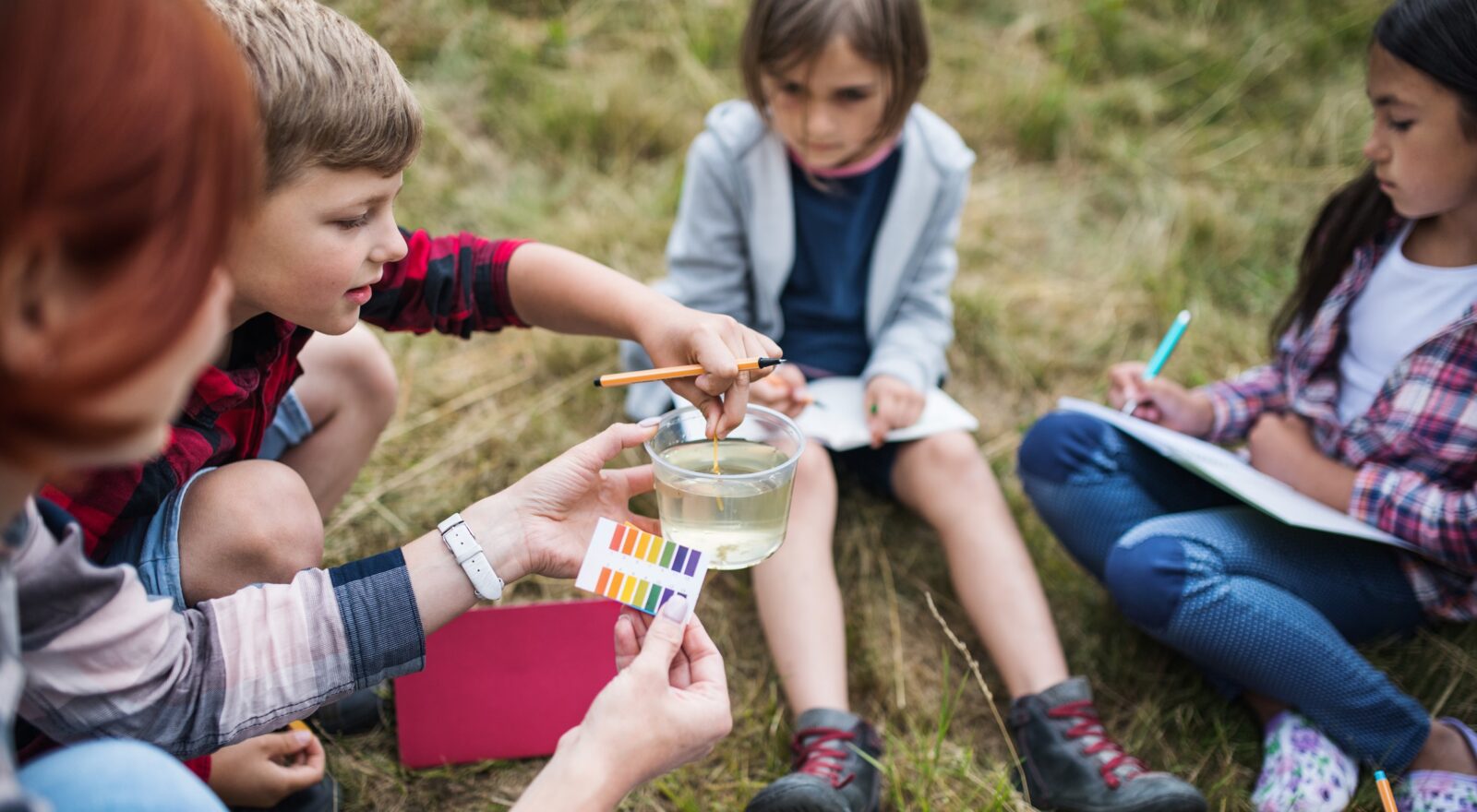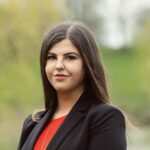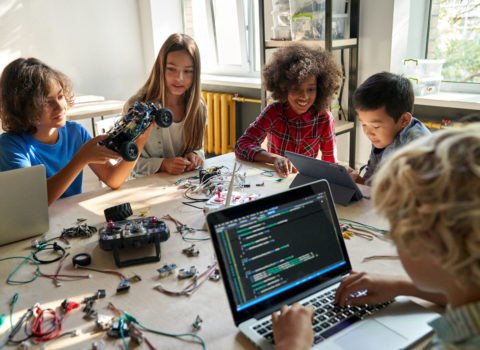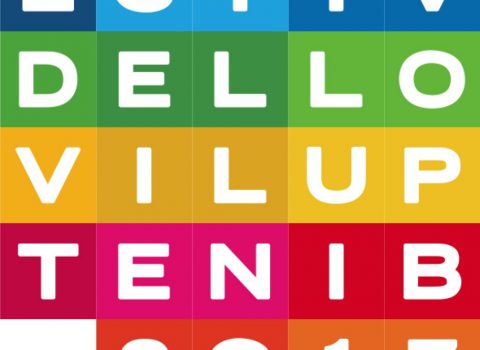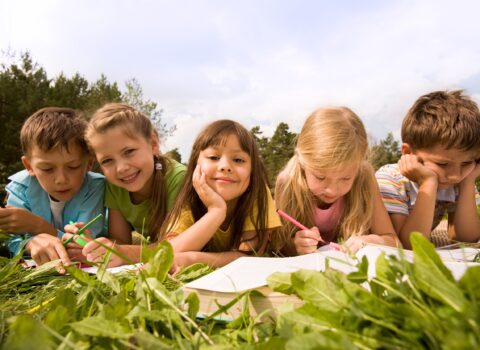
Summer learning loss: what is it and how to contrast it
Interesting research insights emerge on the phenomenon from the quantitative and qualitative evaluation study conducted by FBK-IRVAPP
With the start of September, 7 million students in Italy will return to school as the summer holidays come to an end. For many children, this means having spent a long period of holidays packed with sports, and fun outdoor activities, but for others, summer also coincides with months away from educational stimuli, risking the loss of a large part of what they had learned over the past school year. This phenomenon, known as “summer learning loss,” affects children from disadvantaged backgrounds more significantly and can widen the pre-existing educational gap with children from middle-upper class backgrounds.
The Arcipelago Educativo Project
A research conducted by FBK-IRVAPP evaluated the impacts of the Arcipelago Educativo summer programme. Launched in 2020 by Save the Children Italia and Fondazione Agnelli, the programme aims to combat educational disparities, exacerbated by the Covid-19 pandemic, by offering free activities during the summer to primary and lower secondary school students in nine Italian cities. The programme offers group learning workshops and personalised tutoring, outdoor and sports activities, as well as museum visits.
The evaluation conducted by FBK-IRVAPP
The research team from FBK’s Institute for Evaluative Research on Public Policies was tasked with evaluating the effectiveness of Arcipelago Educativo in countering summer learning loss. Let’s take a closer look at how the evaluation was conducted by IRVAPP, which, as Davide Azzolini and Luigina Jessica Montano from IRVAPP explain in the video interview, was carried out using a mixed-methods approach.
A randomized controlled study was conducted on the 2022 edition, involving 1000 students divided between the treatment group and the control group, to measure the concrete effect on learning provided by the project. Three main results emerged from the study.
- First, it confirms the actual existence of the summer learning loss phenomenon, showing how students who did not participate in the project, when tested in various areas upon returning to school in September, show systematically lower learning compared to June, particularly in mathematics.
- The effects of the programme: The benefits of the programme are mainly seen in Italian, with a 7% increase in learning and even 9% for reading comprehension.
- Finally, the positive effects of Arcipelago Educativo are mainly present in the primary school age group and in students with special educational needs (SEN).
A qualitative analysis was also carried out on the 2023 edition to explore how participants experienced Arcipelago Educativo and to understand which elements of the program were valued the most.
The study implemented the “Most Significant Change,” evaluation method which involved collecting short written stories and drawings from the children. The research team asked participants to describe what was the most significant change they had experienced within the programme and why. The analysis shows that the programme creates a stimulating and inclusive environment where participants feel free to express themselves without fear of judgment, which in turn contributes to increasing self-efficacy and confidence in their abilities. Outdoor activities, museum visits, and contact with nature stimulate their curiosity and contribute to creating a positive attitude towards studying and learning.
Finally, the stories highlight the key role attributed by participants to the programme educators who supported them in understanding the importance of empathy and mutual respect amongst peers, which in turn contributed to strengthening participants’ socio-relational skills.
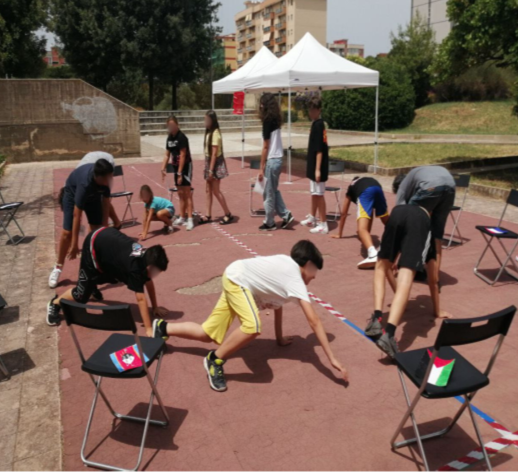
“You didn’t feel judged if you didn’t know the answer to something, whilst sometimes at school it can happen that you feel out of place if you don’t know something […] I felt listened to freer to express myself.”
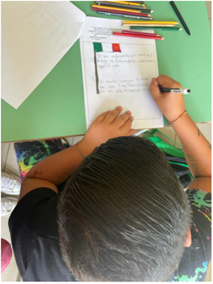
“In September school will start again and I can’t wait. I would like to get good grades as I have learned that studying can be fun”.

“For me the visits were the most important part of Arcipelago Educativo as they generated new interests and my curiosity”.
A Model to Replicate
The results of the evaluation provide useful data for policy makers, as they demonstrate effectiveness not only in learning and academic recovery but also in countering social exclusion, promoting the development of socio-relational skills, and motivating children from disadvantaged backgrounds to have a positive attitude towards learning. The challenge now is to bring similar opportunities to an ever-increasing number of children, transforming summer from a potential period of “loss” into a time of growth, discovery, and inclusion.
